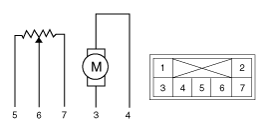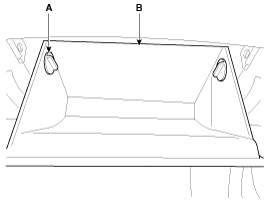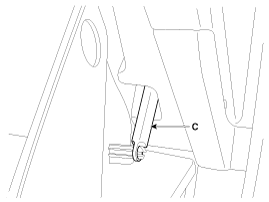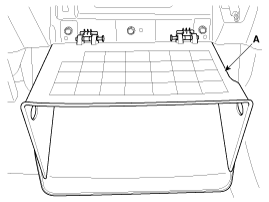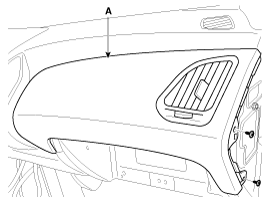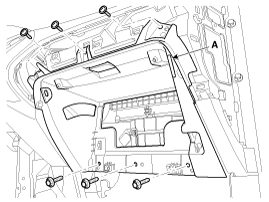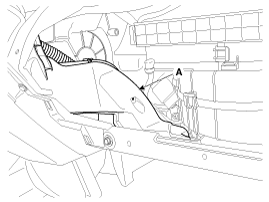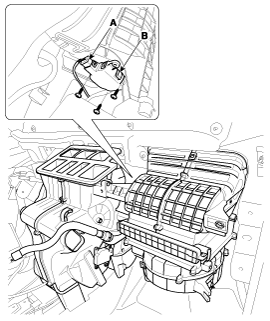Hyundai Tucson: Blower / Intake Actuator Repair procedures
Hyundai Tucson (LM) 2010-2015 Service Manual / Heating, Ventilation and Air Conditioning / Blower / Intake Actuator Repair procedures
| Inspection |
| 1. |
Ignition "OFF" |
| 2. |
Disconnect the intake actuator connector. |
| 3. |
Verify that the actuator operates to the recirculation position when connecting 12V to the terminal 3 and grounding terminal 4. |
| 4. |
Verify that the intake actuator operates to the fresh position when connecting in the reverse.
|
| 5. |
Check the voltage between terminals 6 and 7.
|
| 6. |
If the intake actuator is not operated well, substitute with a known-good intake actuator and check for proper operation. |
| 7. |
If the problem is corrected, replace the intake actuator. |
| Replacement |
| 1. |
Disconnect the damper (A) from the glove box (B).
|
| 2. |
Remove the glove box lift (C).
|
| 3. |
Disconnect the pine, then remove the glove box (A).
|
| 4. |
Remove the crash pad passenger panel (A).
|
| 5. |
Remove the glove box housing (A).
|
| 6. |
Remove the shower duct (A).
|
| 7. |
Disconnect the Intake actuator connector (A). |
| 8. |
Loosen the mounting screw and then remove the intake actuator (B).
|
| 9. |
Install in the reverse order of removal. |
 Intake Actuator Description and Operation
Intake Actuator Description and Operation
Description
1.
The intake actuator is located at the blower unit.
2.
It regulates the intake door by signal from control unit.
3.
Pressing the intake selection switch will shift between re ...
 Controller
Controller
...
Other information:
Hyundai Tucson (LM) 2010-2015 Service Manual: Clutch Release Cylinder Components and Components Location
Components
1. Union bolt2. Gasket3. Tube joint4. Clutch tube5. Valve plate6. Valve spring7. Bleeder screw8. Release cylinder9. Return spring10. Piston11. Boot12. Push rod
...
Hyundai Tucson (LM) 2010-2015 Service Manual: TPMS Receiver Description and Operation
Description
1.
Mode
(1)
Virgin State
A.
The receiver as a sole part is shipped in this state. Replacement parts should therefore arrive in this state.
B.
In this state, there is no sensor monitoring and no DTC monitoring.
C.
The state indicates that platform specific parameters must ...
© 2010-2026 www.htmanual.net

